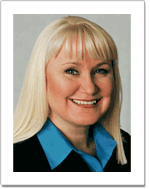What else can you Learn? Genealogy Ongoing
 As is said many times … you never ‘finish’ your family tree. There is always another branch or an ancestor with more details needed to help add greater substance to your family history.
As is said many times … you never ‘finish’ your family tree. There is always another branch or an ancestor with more details needed to help add greater substance to your family history.
So that means to continually educate yourself on the newest and most efficient methods of research. Also don’t overlook improving your writing skills as you put the family stories together.
For assistance here are a few online sites and some suggestions to get started.
First suggestion is to belong to a local or ancestral hometown genealogical society. Most put out monthly newsletters filled in ideas and suggestions. They also maintain membership lists with surnames of their members. Sharing and learning from others is excellent.
Second, there are numerous webinars (seminaries on the Internet). One of the best is by Ancestry.com. Here you select the video topic you need help with. View it as many times as needed. Another video series to view is by national known genealogist, Megan Smolenyak.  Her site has different topics and advice to help the novice or advance researcher.
Her site has different topics and advice to help the novice or advance researcher.
Third, would be institutions, also available on the Internet. Renown would be  FamilySearch.org, their Learning Center. Here from how to get started with your family tree, skill development to breaking through that ‘brick wall’ in your research, there is very good advice provided.
FamilySearch.org, their Learning Center. Here from how to get started with your family tree, skill development to breaking through that ‘brick wall’ in your research, there is very good advice provided.
Fourth idea is if you get the opportunity to attend in person a regional or national level conference such as: National Genealogical Society Conference, the Federation of Genealogical Societies Conference or Roots Tech, you will have a multiple services, experts and products available to learn from and examine.
Of course, first or fifth, always go over the multiple categories and topics covered on FamilyTree.com.  Check out the list of surnames (their origins, meanings and who else shares that name), Genealogy 101 (ideas to kick-start or build the family tree), and Local Heritage (states and regional resources).
Check out the list of surnames (their origins, meanings and who else shares that name), Genealogy 101 (ideas to kick-start or build the family tree), and Local Heritage (states and regional resources).
Even if you have read numerous references offering advice and suggestions, many times it only takes just ONE idea to open up a new family line previously unknown.
< Return To Blog

Leave a Reply